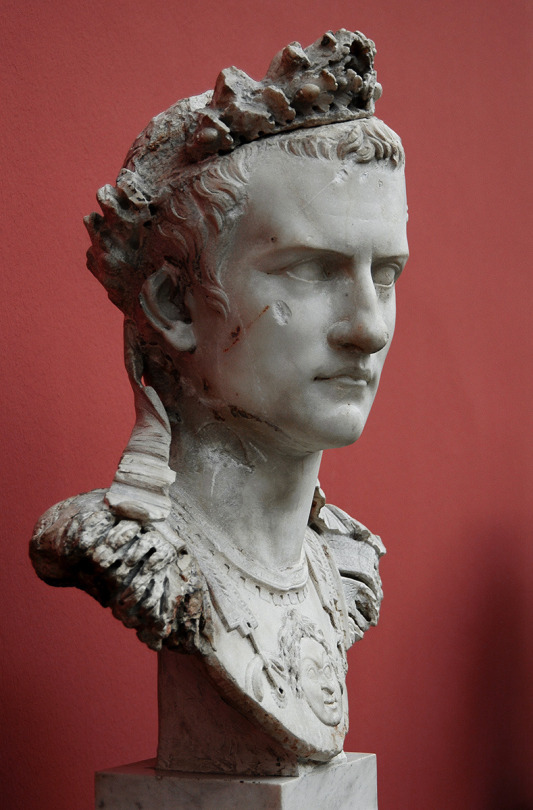#gaius julius caesar germanicus
Text
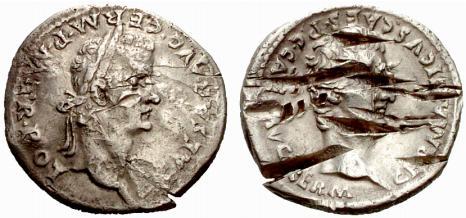

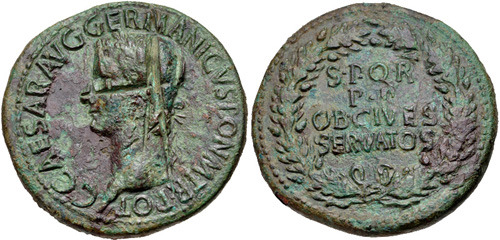
An example of the Damnatio Memoriae decreed on Gaius Caligula on the coins bearing his image. Many of Caligula's coins were withdrawn after his murder and restruck, while others were defaced. Damnatio Memoriae didn't mean that all the traces of the individual were erased, only the ones that showed him in a positive light.
#ancient rome#caligula#emperor gaius#gaius julius caesar germanicus#coins#ancient coins#damantio memoriae#ancient roman coins#julio claudian dynasty
63 notes
·
View notes
Text
The Roman










#fate grand order#fgo jp#fgo grail league#nero claudius#nero claudius caesar augustus germanicus#romulus quirinus#romulus#gaius julius caesar#caligula#pope of joan#constantine xi#charlemagne
278 notes
·
View notes
Text







Domina and the children of the next Julio-Claudian generation
#domina sky#domina mgm+#julio-claudian dynasty#julio-claudians#gaius caesar#julia the younger#julilla#lucius caesar#germanicus#germanicus julius caesar#drusus the younger#claudia livia#livilla#technically germanicus wasn't called germanicus until his father's death#and i am not sure how was it with castor's nickname#missing are agrippina postumus and claudius who are not there except only in extreme background#hope we will see more of the kids next season#it's terrible to realize that most of these kids will die young with a lot of ???? around their deaths or in exile#life expectancy of julio-claudians really declines with each successive generation#like it's around 40 for this generation
64 notes
·
View notes
Text
That feeling when you call your homie 'girlie' as a joke

so he hacks you to pieces in an empty corridor of your mansion
#and then waits for your wife and newborn child to come home#and nerfs them too??#now thats what I call a girlboss#caligula#bootikins#gaius julius caesar augustus germanicus#ancient rome#emperor caligula#mary beard
5 notes
·
View notes
Text
Caligula means “little boots” and was a nickname that the soldiers gave him when his dad brought him to work when he was a kid.
Adorable nickname and kind of childish but it makes sense why we refer to him as Caligula when you learn that his full legal name was Gaius Julius Caesar Germanicus, which is like the Roman Emperor equivalent of being named John Johnson. The way you keep track of these guys is by giving them a singular ominous name and Caligula sounds very ominous if you don’t understand Latin.
2K notes
·
View notes
Text
The single funniest thing I learned when studying the Roman Empire is the fact that in his life and centuries after his death, everyone calls Gaius Julius Caesar Augustus Germanicus…Caligula.
Like. That’s the nickname his dad’s coworkers gave him when he was a literal toddler. It means “little boots” because again, baby in an army camp. And that may as well have been his actual name for how often people called him it.
It’s like being called “King Slugger” for all time.
182 notes
·
View notes
Text
The Emperor and the Stars: Decoding Caligula’s Rise and Fall Through Astrology
Gaius Julius Caesar Augustus Germanicus, better known as Caligula, remains a captivating and controversial figure in history. His reign as Roman emperor was marked by both remarkable achievements and brutal excesses, leading to his assassination in 41 AD. While attributing complex historical events solely to astrological placements would be an oversimplification, exploring Caligula’s birth chart offers fascinating insights into the potential energies that may have shaped his story.
The Seeds of Success: Virgo Sun & Mercury
Caligula’s Sun sign in Virgo indicates a natural aptitude for meticulousness, organization, and service. He was known for his efficiency in administration, implementing reforms in the tax system and public works. The Virgo influence, combined with Mercury (planet of communication) also in Virgo, suggests his sharp intellect and attention to detail. These qualities likely shone during his early reign, as he tackled administrative challenges and established himself as a competent ruler.
However, the Virgoan focus on order and perfectionism could also manifest as excessive criticism and a tendency to micromanage. This could have strained relationships with advisors and officials, leading to frustration and resentment. Additionally, the Virgoan desire for structure and control could have fueled his later attempts to centralize power and exert absolute authority, ultimately contributing to his isolation and paranoia.
Emotional Depths and Attachments: Moon & Venus in Cancer
The Cancerian placements of both the Moon (emotions) and Venus (love, relationships) reveal a strong need for security and emotional connection. Caligula experienced significant childhood trauma, including the exile and death of his parents. The Cancerian Moon suggests an intense sensitivity to these experiences, which could have manifested as a deep longing for security and control in his adult life. He may have surrounded himself with individuals perceived as loyal, but this need for control could have also fostered a climate of suspicion and fear.
These placements also highlight his potential for forming deep attachments, as evident in his close relationship with his sister Drusilla. The loss likely triggered unresolved childhood wounds, potentially fueling his descent into paranoia and cruelty. Additionally, the Cancerian influence on Venus, governing love and relationships, might have manifested in possessive or manipulative behaviors, further isolating him from potential allies and advisors.
The Leo Influence: Mars in Leo
Mars, the planet of action and assertion, resides in Leo in Caligula’s chart. This placement points to ambition, leadership potential, and a desire for recognition. It aligns with his rise to power and initial attempts to be a popular and effective ruler. He may have possessed a natural charisma and used his Leo influence to energize the public during his early reign.
However, the Leo influence, when unchecked, can manifest as an overinflated ego, a need for dominance, and a tendency towards theatricality. As Caligula’s reign progressed, these negative expressions of Leo energy might have come to the forefront. His initial ambition could have morphed into excessive pride and a relentless pursuit of power, leading to increasingly erratic and tyrannical behavior. His desire for recognition could have become a desperate need for constant praise and adulation, ultimately driving him further away from genuine connection and support.
The Downfall: Unbalanced Energies?
While his placements offered potential for both effective leadership and deep emotional connection, an imbalance or negative expression of these energies could have contributed to Caligula’s downfall. The Virgo Sun and Mercury might have become overly critical or micromanaging, while the Cancerian Moon and Venus could have manifested as clinging behavior or emotional manipulation. The Leo Mars, initially fueling ambition, might have morphed into excessive pride, paranoia, and a thirst for power, ultimately leading to his demise.
Conclusion: A Tapestry of Influences
It’s crucial to remember that astrology is not deterministic. Caligula’s life was undoubtedly shaped by numerous factors beyond his birth chart, including historical context, personal experiences, and the choices he made. However, exploring his astrological placements offers a potential lens through which we can understand the underlying energies that may have influenced his personality, strengths, and ultimately, his tragic flaws.
#astrology business#business astrology#roman empire#emperor caligula#astropost#astro posts#astrology community#astrology facts#astrology#astro girlies#astrology observations#astro observations#astro notes#astro community
12 notes
·
View notes
Text

Roman Coin - Gold Aureus of Caligula
C. AD 37-38
Obverse: portrait of Caligula. Reverse : Portrait of Caligula's mother Agrippina. Unlike his predecessors, Caligula lacked military experience. His coinage placed heavy emphasis or his family instead.
Gaius Caesar Augustus Germanicus (31 August 12 – 24 January 41), better known by his nickname Caligula, was the third Roman emperor, ruling from AD 37 until his assassination in AD 41. He was the son of the Roman general Germanicus and Agrippina the Elder, Augustus' granddaughter. Caligula was born into the first ruling family of the Roman Empire, conventionally known as the Julio-Claudian dynasty.
Although Gaius was named after Gaius Julius Caesar, he acquired the nickname "Caligula" ('little boot'), the diminutive form of caligae, a military boot, from his father's soldiers during their campaign in Germania. When Germanicus died at Antioch in 19, Agrippina returned with her six children to Rome, where she became entangled in a bitter feud with Tiberius, Germanicus' uncle. The conflict eventually led to the destruction of her family, with Caligula as the sole male survivor. In 26, Tiberius withdrew from public life to the island of Capri, and in 31, Caligula joined him there. Following the former's death in 37, Caligula succeeded him as emperor. There are few surviving sources about the reign of Caligula, though he is described as a noble and moderate emperor during the first six months of his rule. After this, the sources focus upon his cruelty, sadism, extravagance, and sexual perversion, presenting him as an insane tyrant.
While the reliability of these sources is questionable, it is known that during his brief reign, Caligula worked to increase the unconstrained personal power of the emperor, as opposed to countervailing powers within the principate. He directed much of his attention to ambitious construction projects and luxurious dwellings for himself, and he initiated the construction of two aqueducts in Rome: the Aqua Claudia and the Anio Novus. During his reign, the empire annexed the client kingdom of Mauretania as a province. In early 41, Caligula was assassinated as a result of a conspiracy by officers of the Praetorian Guard, senators, and courtiers. However, the conspirators' attempt to use the opportunity to restore the Roman Republic was thwarted. On the day of the assassination of Caligula, the Praetorians declared Caligula's uncle, Claudius, the next emperor. Caligula's death marked the official end of the Julii Caesares in the male line, though the Julio-Claudian dynasty continued to rule until the demise of his nephew, Nero.
#Emperor Caligula#Roman Coin - Gold Aureus of Caligula#gold#gold coin#roman coin#collectable coin#ancient artifacts#archeology#archeolgst#history#history news#ancient history#ancient culture#ancient civilizations#ancient rome#roman history#roman empire#roman art
36 notes
·
View notes
Text
Caligula was the nickname of the Roman emperor Gaius Julius Caesar Augustus Germanicus who ruled the empire from 37 to 41 AD. This nickname, which translates as "little boots" was used to differentiate Caligula from his father Germanicus Julius Caesar and other Roman royals with similar names. Caligula is most remembered for the final two years of his reign where he lived a life of sexual excess while suffering from insanity.

During the early years of his reign, historical records show that Caligula was a progressive leader who instituted many positive changes for the empire. He launched new building projects for the city of Rome and expanded the empire by conquering overseas provinces. However, it’s the years following a serious bout of encephalitis which sent Caligula mad that he is most remembered for.
This period of Caligula’s reign was characterized by sexual excess and depravity. During this time he had incestuous encounters with at least two of his three sisters, hosted orgies, and raped male and female courtiers and other individuals. Records show that he also acted as a pimp for his sisters. He showed little regard for the people of Rome and matters of the state and indulged in lavish spending sprees which put the empire in a significant financial hole. He attempted to build the empire’s coffers back up by opening a lavishly decorated brothel in the palace helmed by the wives of local senators. His reign came to an end when he was assassinated by his own guards.
A 1979 film adaptation of Caligula’s life is largely regarded as the most graphic, non-pornographic film ever made for its full-frontal male and female nudity and depictions of oral sex, vaginal sex, sadomasochism, orgies, and incest.
#caligula#roman empire#roman mythology#roman emperors#aesthetically pleasing#healthy relationships#dating#aesthetic#ask blog#ask game#art#artists on tumblr#asks open#healthyfood
3 notes
·
View notes
Text
Events 3.18 (before 1930)
37 – Roman Senate annuls Tiberius' will and proclaims Gaius Julius Caesar Augustus Germanicus (aka Caligula = Little Boots) emperor.
1068 – An earthquake in the Levant and the Arabian Peninsula leaves up to 20,000 dead.
1229 – Frederick II, Holy Roman Emperor, declares himself King of Jerusalem in the Sixth Crusade.
1241 – First Mongol invasion of Poland: Mongols overwhelm Polish armies in Kraków in the Battle of Chmielnik and plunder the city.
1314 – Jacques de Molay, the 23rd and final Grand Master of the Knights Templar, is burned at the stake.
1438 – Albert II of Habsburg becomes King of the Romans.
1571 – Valletta is made the capital city of Malta.
1608 – Susenyos is formally crowned Emperor of Ethiopia.
1644 – The Third Anglo-Powhatan War begins in the Colony of Virginia.
1673 – English lord John Berkeley sold his half of New Jersey to the Quakers
1741 – New York governor George Clarke's complex at Fort George is burned in an arson attack, starting the New York Conspiracy of 1741.
1766 – American Revolution: The British Parliament repeals the Stamp Act.
1793 – The first modern republic in Germany, the Republic of Mainz, is declared by Andreas Joseph Hofmann.
1793 – Flanders Campaign of the French Revolution, Battle of Neerwinden.
1834 – Six farm labourers from Tolpuddle, Dorset, England are sentenced to be transported to Australia for forming a trade union.
1848 – The premiere of Fry's Leonora in Philadelphia is the first known performance of an grand opera by an American composer.
1848 – Revolutions of 1848: A rebellion arose in Milan which in five days of street fighting drove Marshal Radetzky and his Austrian soldiers from the city.
1865 – American Civil War: The Congress of the Confederate States adjourns for the last time.
1871 – Declaration of the Paris Commune; President of the French Republic, Adolphe Thiers, orders the evacuation of Paris.
1874 – The Hawaiian Kingdom signs a treaty with the United States granting exclusive trade rights.
1899 – Phoebe, a satellite of Saturn, becomes the first to be discovered with photographs, taken in August 1898, by William Henry Pickering.
1901 – The Kumasi Mutiny of 1901 begins.
1902 – Macario Sakay issues Presidential Order No. 1 of his Tagalog Republic.
1913 – King George I of Greece is assassinated in the recently liberated city of Thessaloniki.
1915 – World War I: During the Battle of Gallipoli, three battleships are sunk during a failed British and French naval attack on the Dardanelles.
1921 – The second Peace of Riga is signed between Poland and the Soviet Union.
1921 – The Kronstadt rebellion is suppressed by the Red Army.
1921 – Mongolian Revolution of 1921: The Mongolian People's Army defeated local Chinese forces at Altanbulag, Selenge (then known as Maimachen). This battle was seen as the birthday of the People's Army and completed the expulsion of Chinese militants in Mongolia.
1922 – In India, Mohandas Gandhi is sentenced to six years in prison for civil disobedience, of which he serves only two.
1925 – The Tri-State Tornado hits the Midwestern states of Missouri, Illinois, and Indiana, killing 695 people.
1 note
·
View note
Text
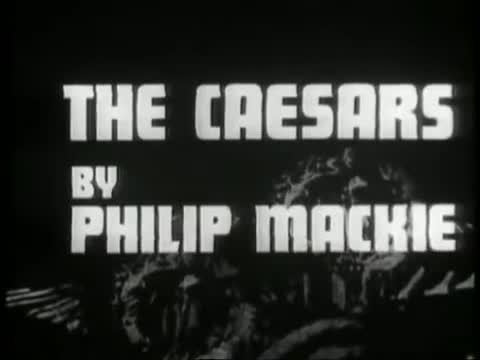


The Caesars - ITV - September 20, 1968 - October 28, 1968
Historical Drama (6 episodes)
Running Time: 60 minutes
Stars:
Roland Culver as Augustus
Eric Flynn as Germanicus
André Morell as Tiberius
Barrie Ingham as Sejanus
Ralph Bates as Caligula
Freddie Jones as Claudius
Sonia Dresdel as Livia
Nicola Pagett as Messalina
Suzan Farmer as Livilla
William Corderoy as Drusus Julius Caesar
Derek Newark as Agrippa Postumus
Caroline Blakiston as Agrippina the Elder
Martin Potter as Nero Julius Caesar
Jonathan Collins as Tiberius Gemellus
Pollyanna Williams as Julia Drusilla
Jenny White as Julia Livilla
Karol Keyes as Agrippina the Younger
Barbara Murray as Milonia Caesonia
Jerome Willis as Naevius Sutorius Macro
Kevin Stoney as Thrasyllus of Mendes
Donald Eccles as Marcus Cocceius Nerva
John Phillips as Gnaeus Calpurnius Piso
John Paul as Cassius Chaerea
Joan Heath as Munatia Plancina
Wanda Ventham as Ennia Thrasylla
Sean Arnold as Marcus Aemlius Lepidus
John Normington as Gaius Julius Callistus
John Woodvine as Publius Vitellius the Younger
Gerald Harper as Lucius Vitellius the Elder
Mark Hawkins as Mnester
Roger Rowland as Quintus Veranius
Charles Lloyd-Pack as Crispus
George Sewell as Ennius
#The Caesars#TV#Historical Drama#ITV#1960's#Roland Culver#Eric Flynn#mnd#Andre Morell#Ralph Bates#Freddie Jones
5 notes
·
View notes
Text
ROMA idols.



#fate grand order#romulus#constantine xi#nero claudius#nero claudius caesar augustus germanicus#gaius julius caesar#official art
21 notes
·
View notes
Photo

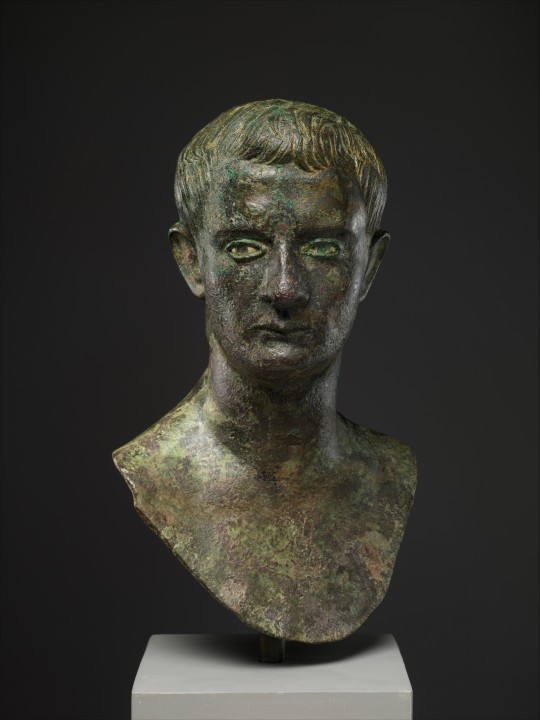
Gaius Julius Caesar Augustus Germanicus, better known by his nickname Caligula
6 notes
·
View notes
Note
Who are your favourite ancient Romans?
Hiiii! This is my first ask, thanks for the question anon. ❤
Well I have a lot to study about Ancient Rome but some of my favorites for now without a specific order are:
Augustus for sure!
Livia Drusilla, I'm completely obsessed with her and the role that she had in the Empire
Marcus Agrippa ofc, he's so smart in so many things and such an interesting figure.
Gaius Maecenas his cunning for diplomacy and politics are fascinating to me
Agrippina, The Younger. One of most powerful women in the Empire and a very smart woman
Mark Antony, he's such an interesting man! Sometimes I don't comprehend his motivations but I love to read about him
Cicero
Crassus
Fulvia
Germanicus
Julius Caesar, basic I know but it was because of him that I got interested in Ancient Rome and history as whole.
These are just a few of my favorites, I didn't put them all on this list because it would be so long.
8 notes
·
View notes
Text
It's nice thing being a History enthusiastic and especially liking The Roman Empire, because there would come a point in your life when you're reading the second book about the god Apollo who was turned into a god and must face great trials, mainly fighting a trio of evil god-emperors, and said god of music recieves a dark propechy that goes "To walk the path in thine own enemy's boots," and Sunny Boy wonders, "mmm, boots...?" so immediately you realize the third god-emperor must be Gaius Julius Caesar Augustus Germanicus, aka Calligula. Then you remember that in said book it was mentioned that the other two emperors are terrified of the third, which seems fitting for the sweet little boots emperor who made families watch their loved ones' brutal executions. You also recall that Calligula declared himself a god, and compared himself to many, one of which was Apollo himself.
2 notes
·
View notes


